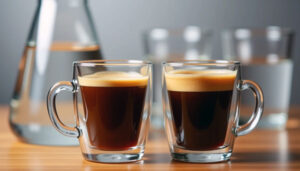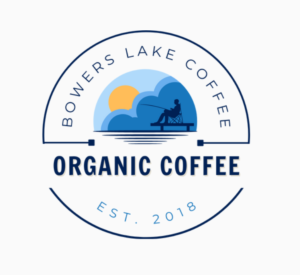Did you know that water makes up 98.5% of your regular coffee cup? While coffee lovers obsess over bean origins, roast profiles, and brewing methods, they rarely think about the main ingredient in their daily brew.
Water does more than just carry coffee flavor—it works as a solvent that extracts compounds from your beans. Your brewing success depends on understanding water’s mineral content and chemistry. A balanced cup needs a golden ratio of 1:18 (one part coffee to 18 parts water). Yet perfect measurements won’t help if your water quality is poor. Hard water changes how coffee extracts at a chemical level. Your coffee’s flavor suffers when you use unfiltered tap water with chlorine. Water’s alkalinity stands out as the key factor that shapes your coffee’s final taste.
Let me show you why water quality matters more than you think. We’ll explore the chemistry behind great coffee water and help you pick the perfect water for your next brew.

Why water quality changes your coffee taste!
When pouring water over coffee grounds it triggers a complex chemical reaction beyond simple dissolution. Your water’s mineral composition plays a crucial role in extracting flavor compounds from beans. Water quality acts as a hidden factor in your brewing process.
Water minerals work like tiny magnets that extract specific flavor compounds from coffee. Calcium and magnesium—the main elements that make water “hard”—affect extraction and mouthfeel by a lot. Coffee made with soft water develops a lighter body and sharper acidity, maybe even turning sour. Hard water creates coffee with a thicker, chalkier texture that tastes flat and muddy.
On top of that, water’s alkalinity level (from carbonates and bicarbonates) changes how your coffee tastes. It neutralizes acids and alters your coffee’s flavor profile dramatically. This explains why identical beans taste different in various locations—local water composition changes the flavor chemistry.
Research at Zurich University revealed that Brazilian and Colombian coffees scored better when brewed with water containing low to medium mineral content. So even the finest beans can’t overcome bad water quality’s effect on flavor.
Coffee tastes balanced and flavorful with Total dissolved solids (TDS) readings between 120-220 ppm. Many experts suggest an alkalinity level around 30-40 ppm brings out complex flavors best.
Understanding water chemistry for coffee
My journey to become skilled at coffee brewing taught me that water chemistry makes all the difference. Let me help you understand what makes good coffee water.
Several measurements tell us about water chemistry. Total Dissolved Solids (TDS) shows what’s dissolved in your water, but that number alone won’t tell you much. You need to think over hardness and alkalinity:
General Hardness (GH): This shows calcium and magnesium levels that improve body and flavor. But watch out – too many minerals can make your coffee taste off.
Alkalinity (KH): Your water’s ability to resist becoming acidic is what we call buffering capacity. This is the single most important factor that affects how your coffee tastes. Higher alkalinity reduces acidity, while lower alkalinity makes coffee taste brighter.
The Specialty Coffee Association suggests these water specs:
- Hardness: 50-175 ppm
- Alkalinity: 40-70 ppm
- pH: 6-8
Your water temperature should stay between 195-205°F (90-96°C). Too hot and you’ll get bitter coffee. Too cold and it’ll taste weak.
Everyone’s taste differs. I like water with alkalinity between 30-40 ppm when brewing light roasts. Many experts call a 2:1 hardness-to-alkalinity ratio perfect for balanced extraction.
How to choose the best water for brewing coffee
Let’s dive into your practical water options for brewing now that you understand water chemistry. My testing reveals these approaches work best:
Test your water first. Home testing kits show your water’s hardness and pH level. Professional testing services give you a complete mineral breakdown if you need more detail.
Filtered tap water makes excellent brewing water when your municipal supply isn’t too hard. Carbon filters eliminate chlorine that ruins coffee flavor, and ion exchange filters make water softer. The Peak Water Pitcher stands out as a coffee-specific filtering solution.
Bottled spring water gives you a convenient option, but you need to choose wisely. The best brands have balanced minerals with pH levels between 6.5-7.5. Surprisingly, Volvic and basic “purified drinking water” often taste better than expensive mineral waters.
Avoid pure distilled or reverse osmosis water unless you add minerals back. These waters lack minerals needed for good extraction and might damage your machine by pulling metals from its components.
DIY water recipes let you control everything precisely. Here’s the simplest mix:
- Distilled/RO water as your base
- Epsom salts for magnesium hardness
- Baking soda for alkalinity
Ready-made options like Third Wave Water or Apax Lab mineral concentrates make water preparation simple. A few drops enhance specific flavor notes in your coffee.
Conclusion
Our exploration shows that water needs nowhere near enough attention in our coffee-making process. Beans might steal the spotlight, but water remains the unsung hero that determines your morning brew’s extraordinary or merely acceptable taste. My years as a barista have shown me countless coffee enthusiasts who upgrade equipment and splurge on premium beans while they unknowingly sabotage their brews with poor-quality water.
You should test your water as often as you select your favorite roast. So, learning about your water’s hardness-to-alkalinity ratio will reshape your coffee experience more than switching bean origins. Coffee lovers are often surprised when they first taste coffee made with properly balanced water – the flavor notes actually match the package’s description!
The best results come from water between 50-175 ppm hardness and 40-70 ppm alkalinity. Your personal preference matters a lot here. My experience suggests you start with slightly lower alkalinity (30-40 ppm) to highlight light roasts’delicate acidity.
You can choose filtered tap water, carefully selected bottled spring water, or try DIY mineral recipes. The secret lies in staying consistent and intentional. Without doubt, once you taste coffee brewed with perfect water, you’ll never think over water as just the vehicle for coffee flavor – it becomes the foundation of great coffee.
The next time someone asks about your coffee setup, start with your water source instead of your beans. This change in point of view might be the missing element in your quest for the perfect cup.
